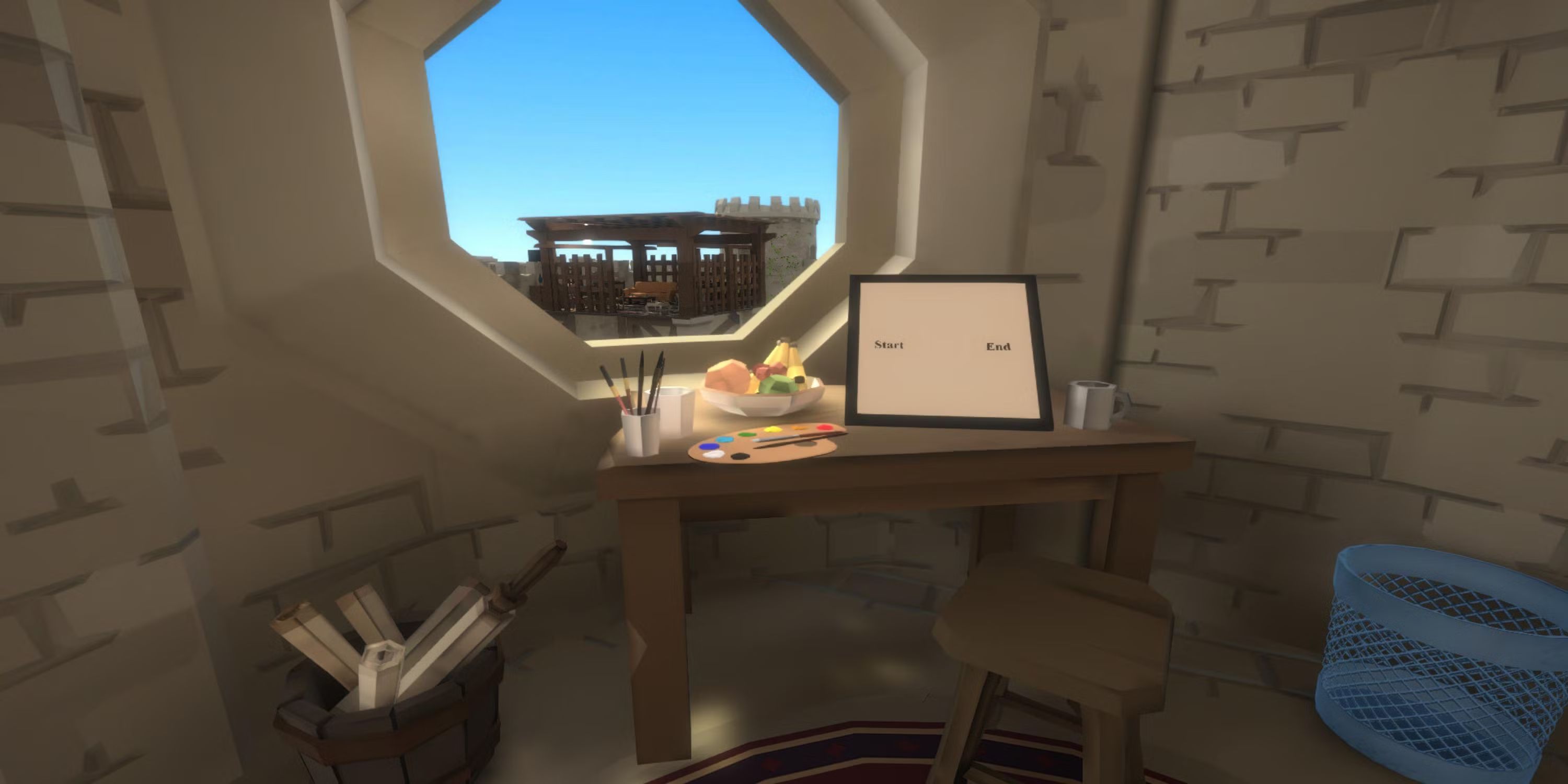
Abstract
- Some open-world video games make the world itself the puzzle.
- The Looker, Sensorium, and The Witness provide mind-bending puzzles in immersive environments.
- Islands of Perception, Quern, and Outer Wilds combine puzzles organically into the world.
Most open-world games are about scale: large maps, numerous targets, and a to-do checklist that would drown a small village. However some video games take a distinct strategy. As a substitute of scattering dozens of small puzzles throughout an enormous world, they make the world itself the puzzle. These video games don’t simply cover their secrets and techniques; they construct complete ecosystems of thriller, the place understanding the terrain, construction, and logic of the surroundings is the one means ahead.
These aren’t playgrounds. They’re locked rooms disguised as islands, planets, or temples. And the true problem isn’t fixing a bunch of puzzles. It’s realizing you’ve been strolling by one all alongside.
The Looker
A Joke So Sensible It Outsmarts You Too
At first look, The Looker seems like somebody pasted googly eyes on The Witness and known as it a day. However what begins as a parody shortly proves it is aware of precisely how puzzle design works, and the way gamers suppose when fixing them. It pokes enjoyable at line puzzles, environmental trickery, and self-important philosophical monologues, all whereas sneakily providing options which are simply as intelligent because the video games it’s parodying.
The entire island remains to be a maze of panels and paths, however the puzzles always subvert expectations. One has gamers draw a line with a marker on a whiteboard. One other makes gamers take into consideration their real-world mouse motion as a substitute of in-game visuals. It performs with meta mechanics, invisible ink, even its personal audio logs, and turns your complete panorama right into a playground of misdirection. The puzzles could look dumb, however they’re intentionally designed to make gamers really feel like geniuses after making them really feel like fools.
Islands of Perception
A 5-Star Resort For Puzzle-Obsessed Minds
The floating archipelagos of Islands of Perception aren’t simply ornamental backdrops for mind teasers; they are the mind teasers. Each island is full of a whole bunch of puzzles, starting from perspective tips and mazes to riddles that stretch throughout a number of biomes. However the genius lies in how every puzzle is organically embedded into the surroundings. That random damage on a hill? That is likely to be a symmetry puzzle from the best angle. These oddly formed cliffs? They’re hiding constellation alignments.
There’s no combat, no ticking clock. Simply gamers drifting by the clouds, fixing at their very own tempo. The multiplayer facet doesn’t really feel intrusive both. Different gamers wander previous like spirits, every following their very own path of riddles. And since every thing is open from the beginning, gamers can wander freely, stumble throughout a thriller that doesn’t make sense but, and are available again hours later when one thing lastly clicks. The world doesn’t inform gamers what to do. It waits for them to determine easy methods to see.
Quern: Timeless Ideas
A Machine Of Stone, Reminiscence, And Thriller
Quern begins with a bridge that instantly crumbles behind the participant. It’s the sport’s quiet means of claiming, “You’re stuck here, and everything around you matters.” What follows is a first-person exploration of a abandoned island the place each construction is hand made and each mechanism has a logic behind it. And it’s not simply puzzle logic, it is bodily, mechanical, and typically philosophical.
The world is layered with interconnected contraptions that should be understood earlier than they can be utilized. Gamers combine chemical compounds, align gears, forge keys, and manipulate mild paths. The island doesn’t simply home puzzles; it capabilities as one, with every new space revealing the way it ties into the remainder of the surroundings. There’s a heavy Myst affect right here, however the place Myst usually felt intentionally obtuse, Quern needs gamers to grasp. It simply needs them to work for it first.
Sensorium
Each Form You See Is A Query Ready To Be Requested
There aren’t any menus in Sensorium. No directions, no targets, no tutorial voice holding the participant’s hand. Only a surreal, vibrant world that pulses with unusual geometry and glowing structure, and a language made totally of symbols, patterns, and logic. At first, nothing is sensible. However slowly, gamers notice: the world speaks in puzzles, and the one means ahead is to discover ways to pay attention.
The map isn’t enormous, nevertheless it’s dense. Buildings twist in not possible instructions. Creatures float by, watching silently. And as gamers solve puzzles, the surroundings reacts, reshaping and opening in ways in which really feel earned. The dearth of spoken language or textual content means every thing must be deduced by instinct and sample recognition. It’s a world the place progress isn’t measured in miles traveled, however in psychological gears turning. And as soon as the puzzles begin syncing up with the surroundings’s rhythm, the entire world begins to really feel like a symphony in movement.
Outer Wilds
What You Don’t Know Can Nonetheless Kill The Solar
Time is the true puzzle in Outer Wilds. The whole photo voltaic system resets each 22 minutes, giving gamers a slender window to discover, experiment, and slowly piece collectively a centuries-old thriller. However what makes this work isn’t simply the ticking clock; it’s how the planets themselves change over time. Sand flows from one planet to a different. Buildings collapse. Pathways seem, then vanish. And the one method to see all of it is to plan fastidiously and study from failure.
Each planet is hand made with a central thought. There’s a planet with a black gap within the center, sucking away the terrain. One other has a twin that steals sand in actual time, exposing its secrets and techniques minute by minute. The brilliance of Outer Wilds is the way it turns statement into progress. There’s no merchandise assortment, no stat timber. Simply data. The participant’s mind turns into the stock. And by the point they’ve looped 100 instances, that tiny system feels larger than most galaxies.
The Witness
It’s Simply A Line Puzzle. Till You Look Up
Wandering round The Witness feels peaceable at first. Only a quiet island, brilliant colours, and a few harmless-looking panels asking gamers to attract traces by grids. However that simplicity is a entrance. Each space introduces new guidelines: reflection, symmetry, sound, after which slowly cranks up the complexity till drawing a single line seems like an examination. After which, the kicker: the surroundings itself is a puzzle, and gamers didn’t even discover.
Bushes type patterns from the best angle. Shadows create line hints. One complete part is hidden except gamers spot a mirrored image in a puddle. The puzzles aren’t simply on panels. They’re within the terrain, within the structure, and even within the island’s geography. And as soon as the participant realizes this, they begin scanning each cliff edge and treetop like a conspiracy theorist with a crimson string board. There are line puzzles, sure. However the true puzzle is knowing how deep the rabbit gap truly goes. And the deeper it will get, the lonelier and extra obsessive the island begins to really feel.





